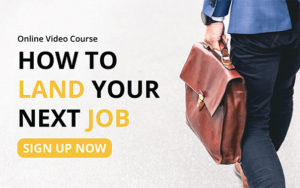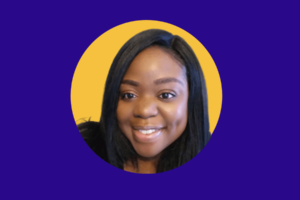Introduction
Hello! It’s Kristine here with the Express to Impress podcast.
Informational interviews are the best-kept secret in networking. In this episode, you’ll learn how to arrange informational interviews to learn more about a company and profession and grow your network. If you missed episode three, How to Make a Strong First Impression, make sure to listen to it as well. That way, when you arrive for informational interviews, you’ll be ready to knock their socks off.
Every week, I post a new episode to help you communicate clearly and confidently in your job search, job interviews, and the workplace. If you like my podcast, don’t forget to subscribe to receive notifications whenever I post a new episode. You can subscribe anywhere you download podcasts like Pandora or my website at www.express-to-impress.com.
Now, let’s begin!
What are Informational Interviews?
Informational interviews can help you make important decisions about your career and, ultimately, land a job. They give you the chance to learn more about a company or area that interests you. More informal than a job interview, the goal of an informational interview isn’t to get a job offer. During such conversations, you will learn about professionals’ real-life experiences in the field, learn about the departments and roles at the company, and uncover the company culture. (A quick reminder that you can find tips and questions to ask to Uncover the Culture of a Company in episode four).
Informational Interviews can be as simple as meeting over lunch, a cup of coffee, a phone call, or a short zoom meeting. Anyone can set up informational interviews, but they can be especially helpful for people looking to change careers, soon-to-be graduates, professionals returning to the workforce, and passive job seekers. They’re also great for people in dead-end jobs who want to find a new workplace that encourages their ambition. By the end of the conversation, you will have a better sense of whether the company is the right fit and decide if you want to apply for a job.
Benefits of Informational Interviews
Let’s look at three benefits of informational interviews.
Get an insider’s perspective.
Informational Interviews allow you to learn what it’s really like to work at a company and in a particular role. An experienced person can describe the challenges they faced as a beginner and ways to handle them. They can share some details that you won’t be able to find online. In the best case, they share the company’s growth plans and tell you if there will be relevant openings.
Learn the reality of working in a particular company.
If you’ve been dreaming of working at a company, it’s high time you set up an informational interview with one of its employees. You may find out that working for the company is different from what you had expected and decide to change your goal. Or the conversation may confirm your hopes and expectations, and you may take steps to seek employment at the company.
Grow your network.
Many people will agree to reflect on their work experience and career path when they realize you have something in common. Perhaps you share similar career goals, attended the same university, or have similar interests and experiences. Once you direct a person to what you have in common, they will be more likely to share their time with you. As you grow your network, make sure you show appreciation and return generosity, so you are building mutually beneficial connections.
Story
In the story section of this episode, I’ll tell you about a time when I explored social impact consulting as a career. The field looked like a fantastic opportunity to apply my knowledge and skills and make a difference. But, I wanted to talk to people already in the field to learn about their experiences. So, I identified three social impact consulting firms that interested me. Then, I went to LinkedIn and found employees who worked for the companies in roles that interested me, gathered some details about their experiences and interests, and crafted three tailored emails to request informational interviews. Two people agreed to meet for a phone call, and another offered to answer my questions over email.
I’ll read one of those emails because, as you know, it worked! I changed the name of the person and company for privacy reasons.
The Request
Hi Noor,
My name is Kristine, and I’m interested in learning more about the work you do at BCG and your career path. I am contemplating both a career shift and a move cross country, and in researching BCG, I stumbled across your profile with your experience and email address. Please let me know if you’d be up for a virtual coffee meet up. We could connect over the phone, on Skype, or another way that you prefer. I promise I won’t take much of your time!
I have a decade of nonprofit program development and management experience within youth education organizations along with research and analytical skills that I gained through my studies (I have a BA in International Business and Spanish and an MA in Global and International Studies, Middle East Peace and Conflict focus). I’m currently an independent consultant for Bloch Executive Education at the University of Missouri-Kansas City. I help with program planning for international executives and special consulting projects within the nonprofit community. I’m also writing a book to give teens the tools they need to organize, lead, and accomplish their goals.
Thank you,
Kristine
The Response:
Hi Kristine,
Thanks for your email. It sounds like we have a number of similarities in our backgrounds. I’d be glad to talk and excited to hear more about some of your experiences too. My calendar is quite flexible next W-F. Is there a time one of those days that would be convenient for you? To toss out a few options (all listed in western time):
Of course, feel free to propose an alternate time that’s more convenient. Also, if the phone works for you, that sounds good from my end. Is there a number where I can reach you?
Look forward to connecting,
Noor
So, we met for a phone call, and Noor was quite generous with her time. She revealed what turned out to be a trend. The work was indeed meaningful, but the hours were long, the pay was not great considering the cost of living in a big city, and the work was highly interactive. She also told me about the company culture and made some recommendations about preparing myself to enter the career.
Ultimately, my informational interviews helped me decide that I did not want to pursue social impact consulting. I didn’t feel disappointment–just relief! After all, I had dodged a bullet! I also felt pleased that I had convinced three professionals I didn’t know to share their time with me. My research about their backgrounds and interests and tailored communication outreach had worked!
Tips for Setting Up Informational Interviews
Research the field. Get relevant information to shape the questions you’ll ask.
Find companies you want to work for. Consider what you want from an employer. Think about culture, benefits, industry, and more. You can check out Great Place to Work, Forbes, Gallup, and Fortune to find a list of companies that have received awards for creating great workplaces. Once a company has caught your attention, investigate further on an employer review site like Glassdoor.
Identify people for the interviews. Your connections are the best point to start: research all your possible contacts: friends, colleagues, and university connections. Social networks make this task easy. Find relevant connections and put them on the list.
Research the person you’ll interview. Social networks, LinkedIn, company websites that include employee bios, and an online search will help you learn all about the person you’ll interview.
Be respectful. Even if you have a burning desire to get this interview, express your enthusiasm in a polite and business-like manner.
Be concise. Respect the person’s time and keep your message brief. Above all, don’t write lengthy emails; just share relevant information.
Tell people how you found them. It’s important to tell a person how you found them. Otherwise, they can feel suspicious or strange. If someone you know recommended them, tell them about it. You can say something like: “Susan Smith recommended you as a person who has substantial experience in the field.”
Alright, now you know how to set up an informational interview and arrive prepared! You’ll get a job in no time!
How to Land Your Next Job Online Course
Since informational interviews can be incredibly helpful during a job search, I cover them in my 5-hour online video course, How to Land Your Next Job. In this episode, you learned the benefits of informational interviews and how to set them up. If you take the course, you’ll learn how to conduct yourself during an informational interview and get a list of questions to ask. You’ll also get a document called “Top Companies Tracker.” As you research companies that interest you, you should record this information to help you compare and contrast and narrow your options. With the tracker, you can easily add essential details about companies and your engagement with them.
Right now, I’m running a 30% off sale on my How to Land Your Next Job online course! Just enter deal30 at the checkout to get the sale price! Visit www.express-to-impress.com to take advantage of this offer through October 31. I can’t wait to see more people build their networks, land their dream jobs, and build careers they love!
Tune in Next Week
Next week, tune in again to improve your English skills. You’ll learn definitions of phrases and idioms from this episode. If you’re a non-native English speaker who wants to understand English speakers better, you won’t want to miss it!
If you want me to discuss a communication topic on the podcast, I invite you to write me an email to tell me about it. You can reach me at hello@express-to-impress.com.
Thank you so much for listening to Express to Impress. If you liked this episode, please remember to share it with a friend! See you next time. Bye!
Music By Lucas Knutter





Leave a Reply
Your email is safe with me.